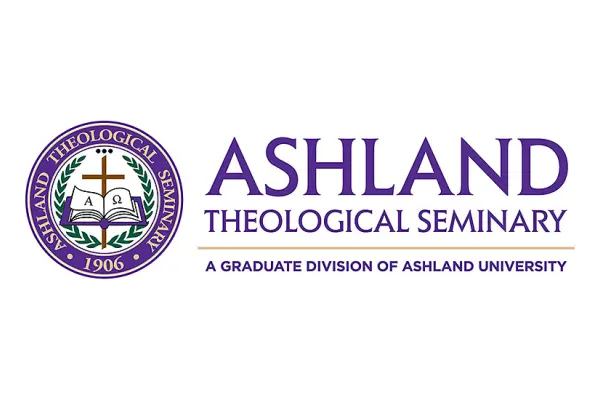
Seminary awarded major grant to help establish Pathways for Tomorrow initiative
ASHLAND, Ohio – Ashland Theological Seminary, a graduate division of Ashland University, has been awarded a $999,776 grant from Lilly Endowment Inc. to help establish the Pathways for Tomorrow initiative. This is a three-phase initiative designed to help theological schools across the U.S. and Canada, as they prioritize and respond to the most pressing challenges they face in preparing pastoral leaders for Christian congregations both now and into the future.
Contemporary challenges in theological education means reimagining what is taught and how to teach, in conversation with the church, along three trajectories: the characteristics and competencies of effective pastoral leaders; holistic formation in collaboration with faith communities; and the elimination of obstacles that hinder potential leaders from pursuing the training they need to serve in ministry.
One of the greatest hurdles to seminary education is cost. The number one struggle for graduates is that debt is debilitating. The proposed program will help Ashland Theological Seminary dramatically reduce the cost of education, allowing students (or the churches that sponsor them) to pay as they go and thereby forgo taking on debt.
“We believe that in order for the pastors we prepare to succeed and thrive, we must develop bold, new, innovative strategies to educate and shape these leaders of the church of tomorrow,” said John Byron, dean of Ashland Theological Seminary. “This grant will help us build the infrastructure and capacity necessary to reimagine theological education in the 21st century.”
Ashland Theological Seminary is one of 105 theological schools receiving phase two grants. Together they represent the broad diversity of Christianity in the U.S. and Canada. The schools are affiliated with evangelical, mainline Protestant, nondenominational, Pentecostal, Orthodox, Catholic, Black church, Latino, Asian-American and historic peace church traditions (e.g., Church of the Brethren, Mennonite, Quakers).
“Theological schools have long played a pivotal role in preparing pastoral leaders for churches,” said Christopher L. Coble, the Endowment’s vice president for religion. “Today, these schools find themselves in a period of rapid and profound change. Through the Pathways Initiative, theological schools will take deliberate steps to address the challenges they have identified in ways that make the most sense to them. We believe that their efforts are critical to ensuring that Christian congregations continue to have a steady stream of pastoral leaders who are well prepared to lead the churches of tomorrow.”
The Pathways for Tomorrow initiative is part of Lilly Endowment’s wider efforts to strengthen theological schools and other religious institutions and networks that prepare pastoral leaders to ensure that a diverse array of Christian congregations are guided by a steady stream of wise, faithful and well-prepared leaders.
Lilly Endowment Inc. is an Indianapolis-based private philanthropic foundation created in 1937 by J.K. Lilly, Sr. and his sons Eli and J.K. Jr. through gifts of stock in their pharmaceutical business, Eli Lilly and Company. Although the gifts of stock remain a financial bedrock of the Endowment, it is a separate entity from the company, with a distinct governing board, staff and location. In keeping with the founders’ wishes, the Endowment supports the causes of community development, education and religion. A primary aim of its grantmaking in religion is to deepen the religious lives of Christians, principally by supporting efforts that enhance congregational vitality and strengthen the leadership of Christian communities. The Endowment values the broad diversity of Christian traditions and endeavors to support them in a wide variety of contexts. The Endowment also seeks to foster public understanding about religion by encouraging fair, accurate and balanced portrayals of the positive and negative effects of religion on the world and lifting up the contributions that people of all faiths make to our greater civic well-being.